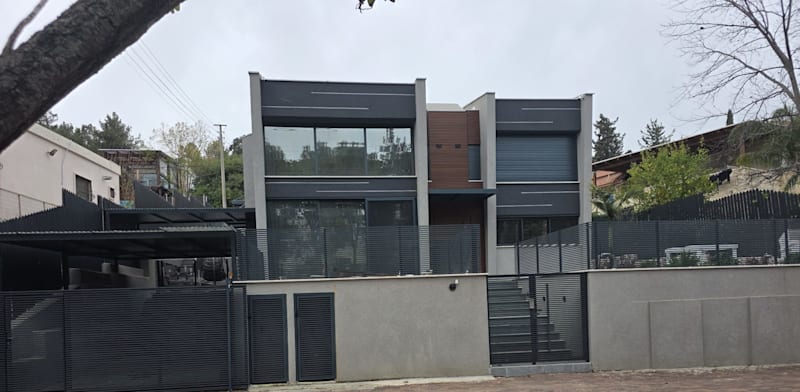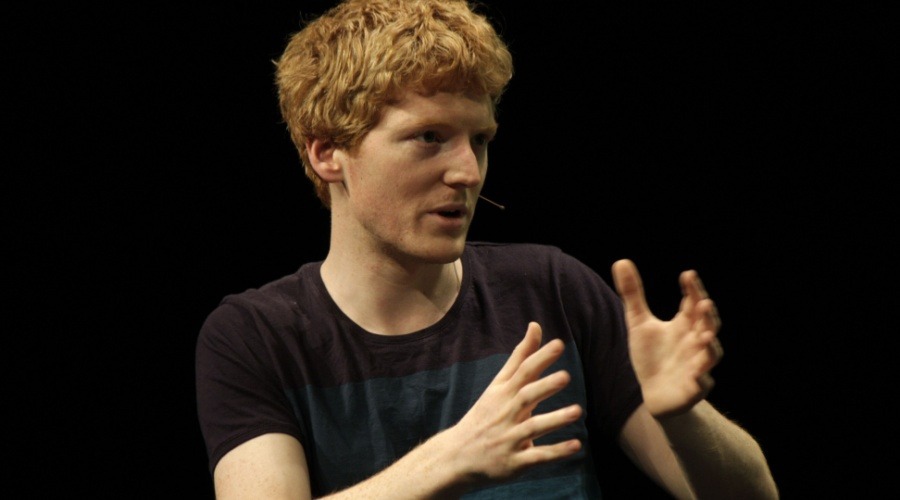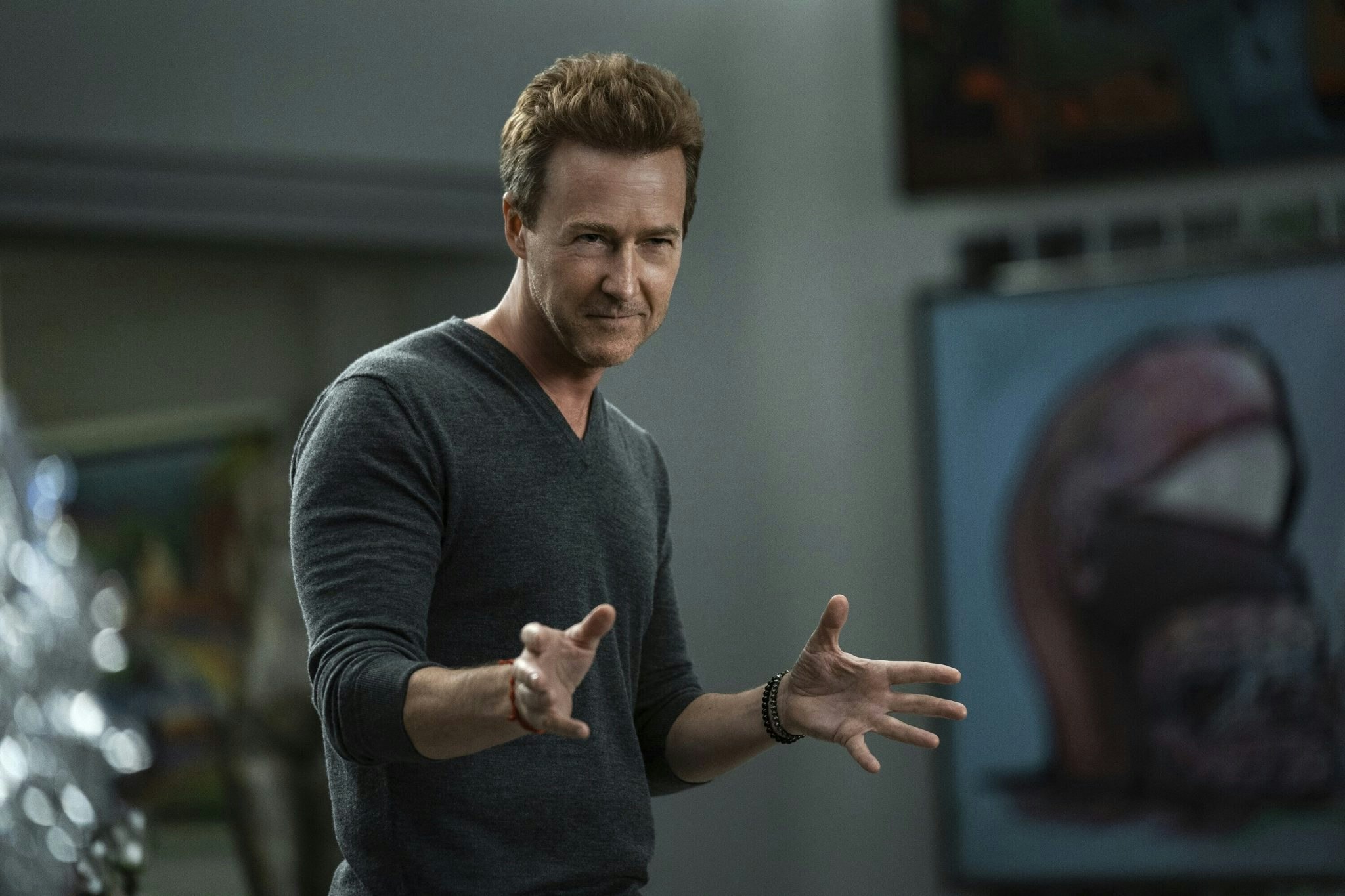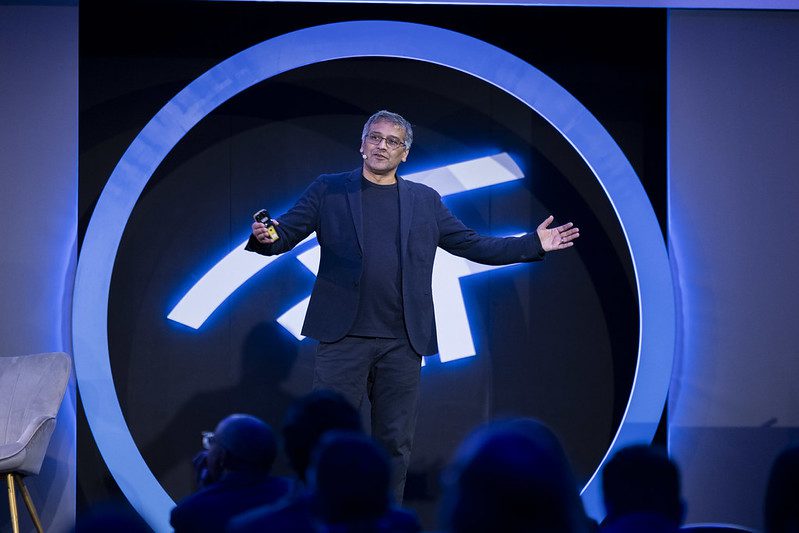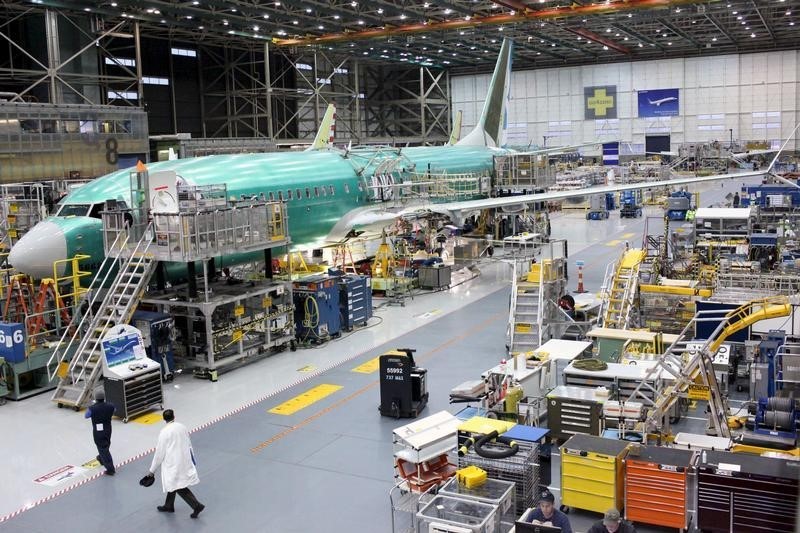© Reuters. FILE PHOTO: Boeing CEO Dave Calhoun speaks with reporters ahead of meeting with U.S. senators on Capitol Hill in Washington, U.S., January 24, 2024. REUTERS/Valerie Insinna/File Photo
By David Shepardson and Allison Lampert
(Reuters) -Boeing CEO Dave Calhoun will step down by year-end in a broad management shakeup brought on by the planemaker’s sprawling safety crisis exacerbated by a January mid-air panel blowout on a 737 MAX plane.
In addition, board chair Larry Kellner and Stan Deal, head of the company’s commercial planes business, are also leaving as Boeing (NYSE:)’s board tries to get control of the myriad issues that have shaken confidence in the iconic planemaker over several weeks.
The January incident was the most recent in a series of safety crises that have shaken the industry’s confidence in the planemaker and hampered its ability to increase production. Calhoun, 66, was brought in as CEO following a pair of crashes in 2018 and 2019 that killed nearly 350 people.
Immediately after the Jan. 5 panel blowout, airline executives expressed support for Calhoun, but those good feelings ebbed after additional production delays and as regulators detailed quality problems at its key manufacturing hub outside Seattle.
Some investors said the shake-up would not be enough to address these persistent issues.
“Boeing has had massive problems for years and he has not been able to fix those problems,” said Adam Sarhan, chief executive at investment firm 50 Park Investments. “The CEO’s job is to fix the problem, and he hasn’t been able to do that.”
Boeing shares have lost roughly a quarter of their value since the incident. They were up 1.2% Monday, well off earlier highs.
The company is facing heavy regulatory scrutiny and U.S. authorities curbed production while it attempts to fix its safety and quality problems. The company is in talks to buy its former subsidiary Spirit AeroSystems (NYSE:) to try to get more control over its supply chain.
Michael O’Leary, head of Ireland’s Ryanair, a top Boeing customer, said on Monday the airline welcomed the “much-needed” management changes at Boeing, saying the shakeup was good for the U.S. planemaker’s customers.
Calhoun said he made the decision to step down. “It was me giving them notice that at the end of this year I plan to retire,” Calhoun told CNBC. He said he wanted to stay to the end of the year to address quality issues.
COO Stephanie Pope has been appointed to lead Boeing Commercial Airplanes, effective Monday.
Steve Mollenkopf, former CEO of tech company Qualcomm (NASDAQ:), has been appointed new chair of the board and is leading the search for the next CEO. A source told Reuters Mollenkopf will join Kellner on planned meetings with major U.S. and foreign airline CEOs.
Scott Hamilton, managing director at aviation consulting firm Leeham Company, said the changes “speak to the depth of the crisis at the company following Jan. 5’s accident … But it also speaks to the thin bench for executive ranks.”
QUESTIONS ABOUT MANAGEMENT
Regulatory scrutiny surfaced troubling issues that caused investors and customers to lose confidence in the iconic manufacturer.
A U.S. National Transportation Safety Board report of the Alaska Air (NYSE:) incident found that the panel blowout was caused in part because several bolts meant to hold the plug in place were removed and not replaced – and there was no paperwork detailing what happened to those bolts.
The head of the NTSB told lawmakers in early March that the company had not provided records the agency had requested.
Following the incident, the FAA curbed Boeing production to a rate of 38 jets per month, but CFO Brian West said last week it had not even reached that figure. He added the planemaker has been burning more cash than expected in this quarter than expected.
Last week, a group of U.S. airline CEOs sought meetings with Boeing directors without Calhoun to express frustration over the Alaska Airlines accident and management.
“The problems in Boeing’s executive suite are systemic. Nothing is going to change for the better without company leadership acknowledging their failures and thoroughly committing to fixing them,” said Ray Goforth, executive director of the Society of Professional Engineering Employees in Aerospace, which represents more than 19,000 workers at Boeing and Spirit AeroSystems.
Analysts and investors called the shakeup positive for Boeing, but stressed that much depends on Calhoun’s successor and changing the company’s culture from the top.
Calhoun told CNBC Boeing will fix its quality issues. “They are up to the challenge,” Calhoun said. “We’re going to calm it down. We’re going to get ahead of it.”
United said it “continues to root for Boeing’s success and we look forward to working with them during their leadership transition.” Delta said it “will remain closely engaged with Boeing.”
Some suggested Spirit AeroSystems CEO Patrick Shanahan, a former Boeing executive and U.S. government official, now tasked with a complex tie-up deal with the U.S. planemaker, as a possible successor to Calhoun.
Shanahan’s “sole priority remains building a culture of safety” at Spirit, spokesperson Joe Buccino said Monday.










